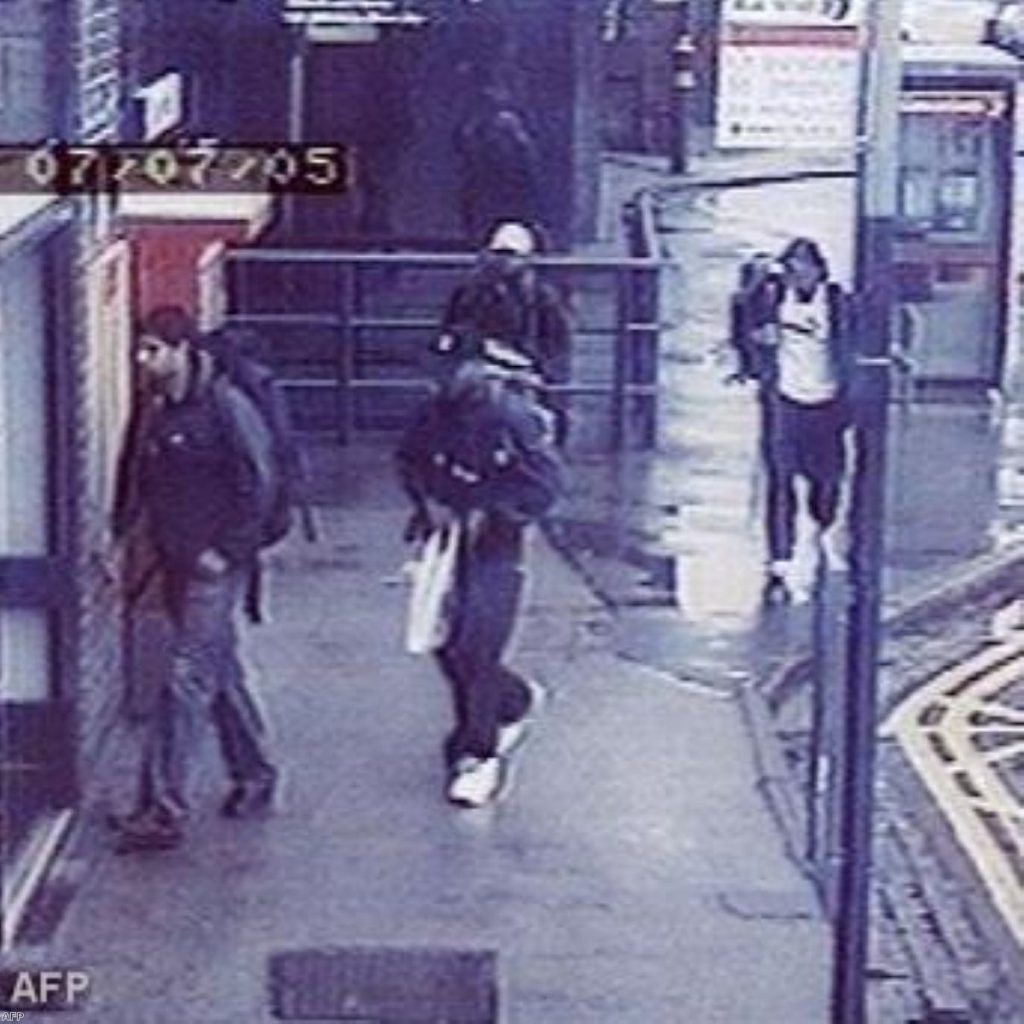Reid rejects July 7th investigation
The home secretary John Reid has rejected calls from opposition politicians for a full inquiry into the intelligence surrounding the July 7th terrorist attacks after it emerged two of the bombers were monitored by MI5 but not identified as potential terrorists.
After five men were found guilty for an Al Qaeda linked bomb plot on targets such as Bluewater shopping centre and the Ministry of Sound nightclub, MI5 admitted that two of the July 7th terrorists were on the “periphery of other organisations.”
The link became public as the Old Bailey found five men guilty of conspiracy to commit explosions, following a year-long trial into an alleged fertiliser bomb plot. Omar Kyam, 25, Jawad Akbar, 23, Salahuddin Amin, 32, Waheed Mahmood, 35 and Anthony Garcia, 24, were all found guilty by a jury today.
Judge Sir Michael Astill said the men, who are all British citizens, had “betrayed their country” before sentencing them all to life sentences with a minimum of 35 to 45 years in custody.


Following the verdict Mr Reid said: “Five dangerous terrorists are now behind bars thanks to the hard work of our police and security services.
“I want to thank the men and women in the police and security service who have worked extremely hard to ensure the perpetrators of this plot have been brought to justice and a major terrorist attack that could have killed and injured many people has been averted.”
During the trial it emerged that two of the July 7th bombers, Mohammaed Sidique Khan and Shezad Tanweer, were observed by the security services but not identified as potential terrorists. At one point MI5 followed Khan to his home in Leeds, but failed to pass on information to West Yorkshire police.
This creates an “overwhelming” case for an inquiry, the Conservatives claimed, but Mr Reid rejected this and called for time to “reflect” on the verdict.
The shadow home secretary David Davis argued two facts had become “crystal clear” during the trial: the intelligence services were monitoring two of the London bombers but had stopped by July 2005; and the government has not been open about the circumstance and mistakes leading up to July 7th.
“As a result, after nearly two years and five government reports, we still don’t know the truth. And that means we still can’t learn the lessons from those tragic events,” said Mr Davis.
He called for a full independent inquiry, arguing this was the “only way to achieve clarity for the British public, closure for the bereaved and ensure the security services and government learn the lessons to help prevent another attack.”
However, Mr Reid told MPs that a public inquiry would not be the “correct response” at this time.
He claimed: “It would divert the energies and efforts of so many in the security service and police who are already stretched greatly in countering the [terror] threat. And our responsibility of government is to try and minimise the chances of any other group of families ever having to suffer in the way the families of 7/7 did suffer.”
“I think this is a way of answering some of these questions without a massive diversion of resources from out security services.”
Mr Davis rejected Mr Reid’s assurance that no mistakes were made in the run up to July 7th. He claimed the government’s line that the July 7th bombers were not known to the authorities is now “plainly not true”.
“MI5 were aware of the involvement of Khan, had the registration number of Khan’s car, which was registered first in his wife’s name and then in his own and the address where he left that car in Yorkshire,” explained Mr Davis.
He continued: “The very fact that there are clear discrepancies between accounts of the operation of this case reinforces the requirement for an independent – not public – inquiry as an essential tool in improving our security services.”
The Liberal Democrats had also argued for an independent inquiry modelled on the Butler report, which investigated the credibility of the intelligence leading to the war in Iraq.
Lib Dem leader Sir Menzies Campbell said the information now available was cause for public concern and should prompt a full debate into the security service and reliability of government information leading up to the London bombings in 2005.
“While the security service has a difficult role to play and cannot be expected to succeed every time, serious questions must be asked about key operational decisions,” he said.
“We must also question government briefings after 7th July which asserted that the bombers were ‘cleanskins’, when we now know that this was not true.”
Following today’s verdict, Mr Reid defended the government’s record on counter-terrorism, urging people to remember that “100 per cent commitment can never guarantee 100 per cent success.”
In an attempt to diffuse criticism, MI5 has taken the unusual step of responding via its website to questions raised by the trial.
Although the intelligence services were aware of Khan and Tanweer, “even with the benefit of hindsight,” it would not have been possible to conclude they posed a terrorist threat, the department claimed.









